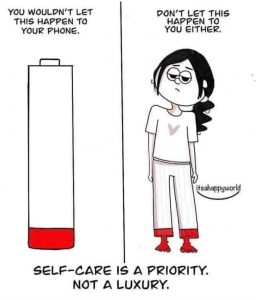As we face the last few weeks of this year it is important that you refuel with purpose and understand a bit more about what you might be feeling and thinking. Many of the people I speak to are tired, relentlessly exhausted and ready to shut down for their December Breaks by the time September comes. I came across this article by David Lapin and it started to make sense. In addition, you might want to check out our blog on the 7 Types of Rest and the Free Resources to help you activate the ideas.
“Consider two different states of being: fatigue and depletion. Fatigue is when a muscle or the mind has been used almost to the point of failure and it requires rest to recuperate. Contrastingly, depletion is when our inner resources of energy have been drained—and this may have no connection to exertion. One can be depleted without feeling tired. And one can be tired without feeling depleted.
Consider an empty glass of water. You can rest it for as long as you will, but rest won’t replenish its contents. Similarly, your body and mind are just containers. Your emotions, your intellect, and your spirit are the contents. You can only give emotional, intellectual, and spiritual output when your container is overflowing with content. This means you always need more emotional, intellectual, and spiritual input than output. If you continually draw from your content, you quickly become depleted.
But here’s the problem: Because fatigue and depletion can feel the same, we often misdiagnose our condition. We think we are fatigued, so we rest. But in fact, we might be depleted, in which case no amount of rest will restore our inner resources. When we are depleted, we need restoration rather than rest or relaxation.
 Leaders are currently suffering more from depletion than from fatigue, but few recognize this. Some took summer leave and came back as exhausted as before, because rest and relaxation alone don’t restore depleted inner resources. This is why I think we are in the toughest phase of the pandemic, because we aren’t just exhausted—we are depleted. We are depleted because our usual channels of restoration are not readily available to us anymore. We are normally restored by human contact through the exchange of energy and discourse, even in the form of passing interactions with other travelers at airports, servers at restaurants, or attendants in stores. Virtual meetings keep us going, but they don’t restore our inner energy. Moreover, on a Zoom call, we’re interfacing with a screen, not a person.
Leaders are currently suffering more from depletion than from fatigue, but few recognize this. Some took summer leave and came back as exhausted as before, because rest and relaxation alone don’t restore depleted inner resources. This is why I think we are in the toughest phase of the pandemic, because we aren’t just exhausted—we are depleted. We are depleted because our usual channels of restoration are not readily available to us anymore. We are normally restored by human contact through the exchange of energy and discourse, even in the form of passing interactions with other travelers at airports, servers at restaurants, or attendants in stores. Virtual meetings keep us going, but they don’t restore our inner energy. Moreover, on a Zoom call, we’re interfacing with a screen, not a person.
So how do you know if you are fatigued or depleted, and how do you treat depletion?
Fatigue generally applies to your body and your mind. Depletion generally applies to your emotions, your intellect, and your spirit. Depletion can give you the feeling of physical or mental exhaustion. But you know it’s not fatigue you’re suffering when rest and relaxation don’t replenish you.
The way to treat depletion is with restoration, not with relaxation. While relaxation is a passive state of “not-doing”, restoration is a deliberate, active choice of activities different from your routine activities, which add energy instead of consume energy.
Here are some examples of restorative activities:
- regular prayer or meditation;
- walking in nature and pausing to notice all the sounds, sights, and textures around you;
- reading something beautiful or inspiring rather than useful;
- physically meeting and spending quality time with loved ones for nothing more than connecting and sharing;
- listening attentively to music that is harmoniously complex and rich in sounds and themes;
- applying your mind to a challenge totally unrelated to work;
- regular journaling.
Check in with yourself, your partner, and your team. Are they fatigued, or are they depleted? Explain the differences to them and help them diagnose their state correctly by asking them guiding questions. Even just a conversation about depletion can help restoration.”
In the workplace you might notice:
- failure to meet deadlines
- lower commitment to the organization
- more absences
- high turnover rate
 These are symptoms that could be associated with emotional depletion. This year has taken a toll on everyone and kindness and grace need to be extended. Even though as leaders we need to make tough decisions, we can ALWAYS act with kindness, respect and humanity.
These are symptoms that could be associated with emotional depletion. This year has taken a toll on everyone and kindness and grace need to be extended. Even though as leaders we need to make tough decisions, we can ALWAYS act with kindness, respect and humanity.
NOTE: The majority of this blog is copied directly from the work of David Lapin. I have not been able to trace the original article to reference appropriately.




